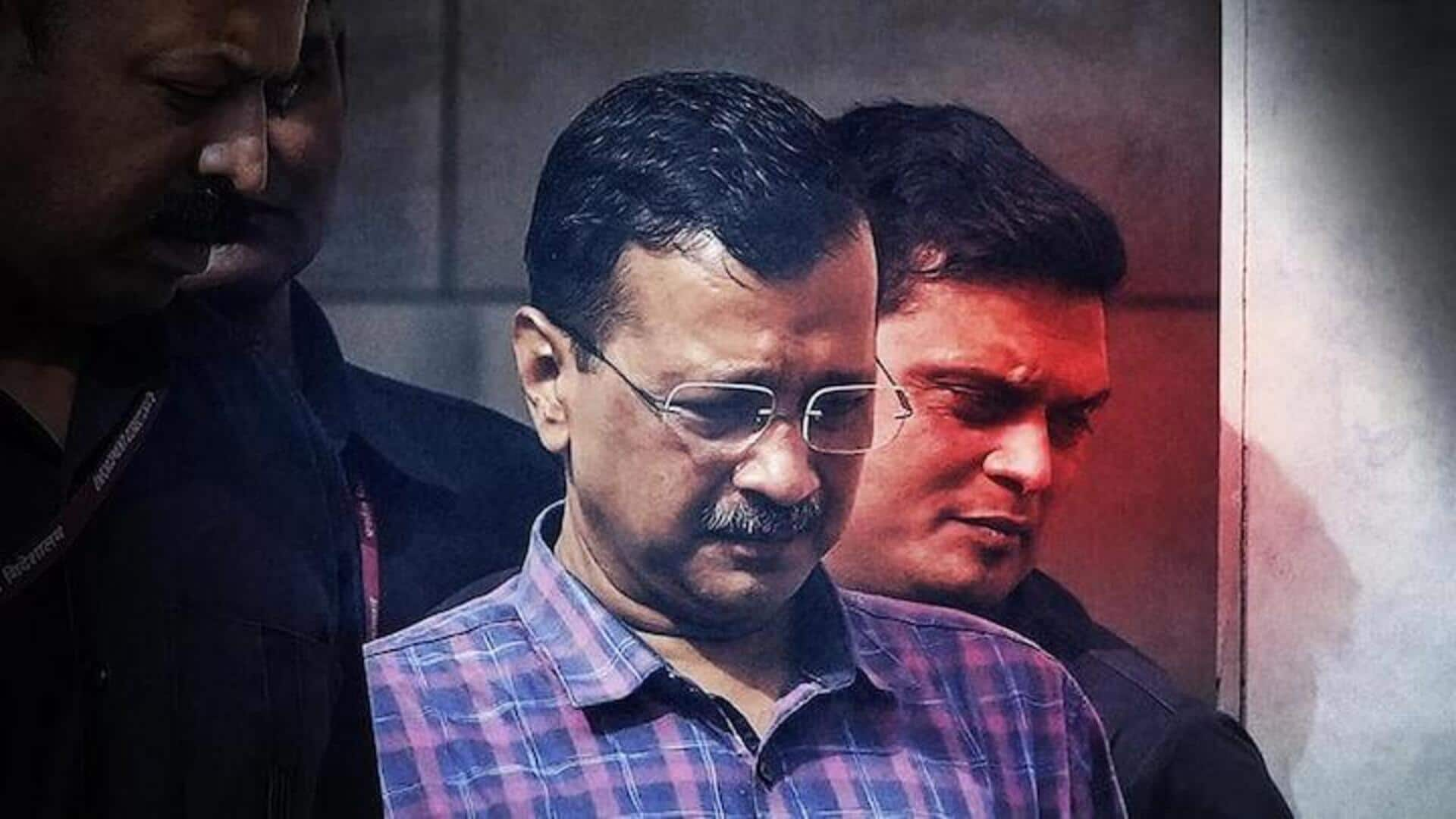
Supreme Court refuses interim bail to Kejriwal, seeks CBI response
What's the story
The Supreme Court has rejected Delhi Chief Minister Arvind Kejriwal's plea for interim bail in a corruption case linked to the now scrapped liquor policy. It also issued a notice to the Central Bureau of Investigation (CBI) on a petition filed by Kejriwal challenging his arrest and remand by the probe agency in the case. The bench of justices Surya Kant and Ujjal Bhuyan heard Kejriwal's two petitions.
Arrest details
Kejriwal's arrest and detention
Kejriwal was arrested by the Enforcement Directorate (ED) on March 21 in connection with the Delhi excise policy case. He has been under custody since then, except for a brief period between May 10 and June 2 when he was granted interim bail by the Supreme Court for the Lok Sabha elections. On August 5, the Delhi High Court ruled that Kejriwal's arrest was neither illegal nor without justifiable grounds.
Court ruling
Delhi High Court's observations on Kejriwal's arrest
The court observed that the CBI presented "evidently enough evidence" to warrant his detention and remand. The high court also noted that Kejriwal is not an ordinary citizen but a distinguished recipient of the Magsaysay Award and the convenor of the Aam Aadmi Party. The Supreme Court had granted Kejriwal interim bail on July 12 in the petition filed by the Enforcement Directorate (ED) in connection with the liquor policy case.
Legal arguments
Kejriwal's lawyer's arguments and CBI's response
However, he remained in jail following his arrest by the CBI on June 26. Kejriwal's lawyer, AM Singhvi, argued that his client's arrest by the CBI was an "insurance arrest" pre-empting his release in the ED case. But this claim was refuted by the CBI, which contended that they required Kejriwal's custody for investigation under the Prevention of Corruption Act.
Plea details
Kejriwal's plea to the Supreme Court
In his plea to the Supreme Court, Kejriwal heavily relied on a previous verdict where former Delhi deputy chief minister Manish Sisodia was granted bail. The petition highlighted the top court's observations in the Sisodia case that prolonged incarceration without trial could amount to a violation of fundamental rights, particularly when the investigation is largely complete, and the accused has deep roots in society, reducing the risk of absconding.